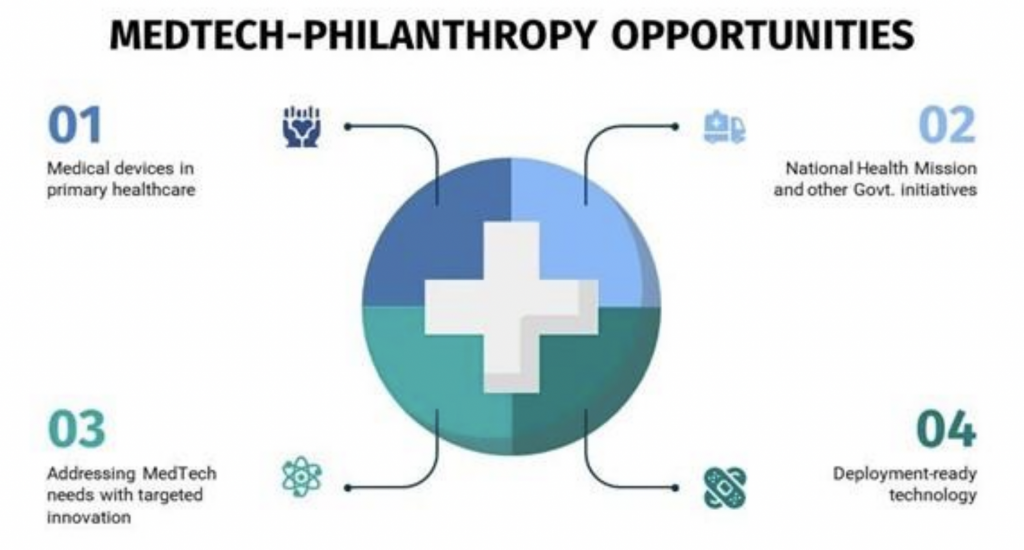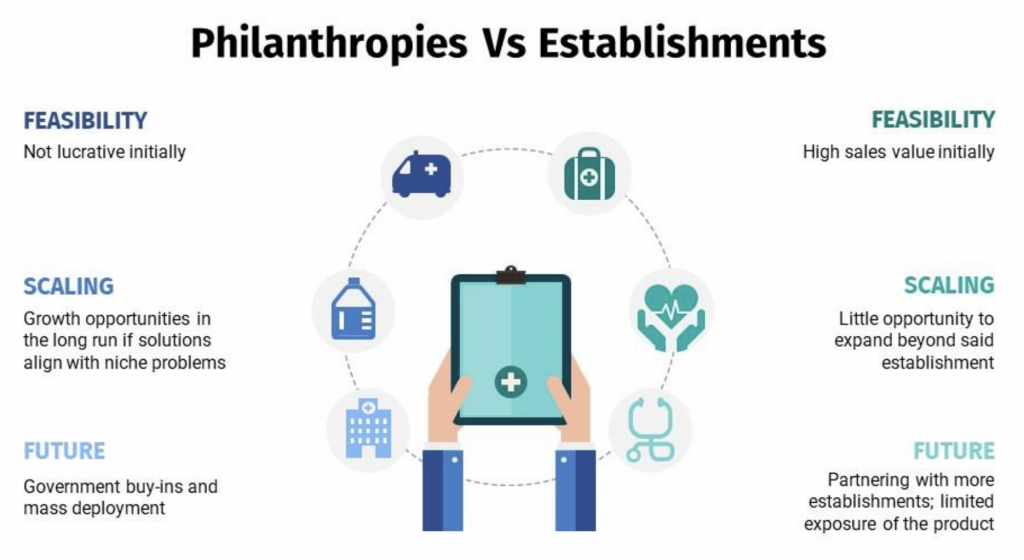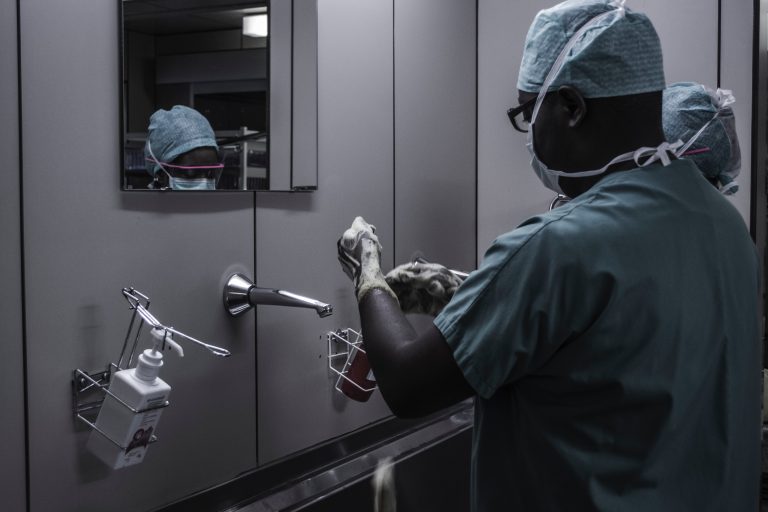Business Partnerships That Make Sense: MedTech Start-Ups and Philanthropists
Like any major industry post-covid, the medicine industry has begun to rebuild itself through technological transformation. However, the medical sciences are extremely meticulous in their processes and take longer than other industries to develop. Often, many start-up incubators for MedTech suffer abandonment, owing to the time needed for research and the achievement of evidenced safety of use (for devices or medicine).
We interacted with Devesh Varma, former VP & CTO for Piramal Swasthya, a leading Philantrophy organization, who elaborated on the opportunities, strategies, and suggestions for MedTech start-ups in partnering with philanthropic organizations.
Opportunity in Realigning CSR Through Philanthropy in MedTech
There is an opportunity in every vacuum, which is the case with the MedTech industry. While the Government does look for MedTech devices, that space is largely empty of innovations. This is where MedTech start-ups need to create an opportunity.

MedTech and philanthropic organizations create a chance for them to put their medical devices to the test and scale exponentially. When there is a synergy between how and where a philanthropy organization operates, the right MedTech start-up can create a big impact.
Instances of Successful MedTech-Philanthropist Tag Team
Devesh names a couple of MedTech start-ups that Piramal Swasthya has assisted, like CareMother. This start-up created a fetal health-rate monitor that Swasthya helped deploy across various health and wellness centers.
Healthcube is another MedTech innovator that has developed a dictionary-sized diagnostics device to screen patients for about 30 tests and deliver results within 15 minutes. Swasthya helped Healthcube deploy this MedTech solution in various health and wellness centers. Swasthya is also working with various MedTech start-ups for solutions in COVID, tuberculosis, and diabetes-related health problems.
A healthcare value proposition showcase needs to exist for the philanthropist to invest in innovation. The kind of intervention that a MedTech start-up is trying to bring into the ecosystem of an institution needs to be demonstrated first.
Differences Between Philanthropy and Hospital Partnerships for MedTech Start-Ups

The nature of philanthropic organizations makes them innately different from other business models (such as partnering with hospitals or other medical establishments). Devesh emphasizes that the MedTech startups need to focus more on social returns than the financial ROI.
The fact that philanthropic organizations offer the opportunity for long-term partnerships establishes their social benefit, which doesn’t go unnoticed by the Government. MedTech start-ups can then expect buy-ins from the Government; it is here that they will get opportunities to grow and achieve economies of scale.
On the other hand, establishments do offer initial returns, but they do not really catalyze the start-up’s growth.
Another critical aspect that start-ups need to consider before pitching to philanthropy is understanding their area of intervention and the community needs they address. Devesh adds that MedTech startups need not necessarily operate in the hardware niche. They could work for the soft solutions as well, like data analytics, which is much needed in healthcare.
Areas Of Failure To Address For Entrepreneurs
Entrepreneurs often face challenges in proposing their solutions to philanthropists. Devesh suggests that MedTechs need to create technological solutions that can be used by the people they would end up with – like with most tech solutions used by frontline health workers. For example, an always-online solution does not always make sense for applications in remote areas that suffer from a lack of connectivity; when the MedTech solution is ultimately going to be reviewed by the Government, it has to make sense in an offline environment as well.
Additionally, there must be a proper follow-up, aftercare, upkeep plan for the deployed solutions.
Sales Cycle Duration for Working With Philanthropies
Here, Devesh emphasizes the importance of understanding what a start-up aims to do with its product, whether they want to establish it in the ecosystem or gauge its impact. That determines the sales cycle where the start-up goes with its product, either first to an establishment or to a philanthropist.
Technological solutions are easy to create; however, in the longer run, medical establishments can only provide initial deployment with no opportunities for scaling. On the other hand, the sales cycles are usually longer with philanthropic organizations; however, there is a high potential for growth and expansion pan-country by partnering with the Government.
End Note By Devesh
Business options with philanthropists have never been as opportune as today. The rapid paradigm shift in the outlooks of MedTech start-ups and MedTech philanthropists has created a wave of confluent business events that all can be more outward and community-oriented than they are now.
About Devesh
Devesh Varma has worked in diverse roles from database development to heading the IT department in reputed organizations such as Daffodil Technologies, ADISoft Tech Private Limited, and others. In his last role, he was the Chief Technology Officer at Piramal Swasthya.
More details about him here: https://www.linkedin.com/in/varmadevesh/
Subscribe to Newsletter
Recent Posts
- Bridging The Gaps Between Treatment and Diagnosis: The FastSense Approach
- Embedded Finance in Healthcare Industry in India: Collaboration with FinTech and MedTech Companies
- Thermaissance: Where Healthcare and Quality of Life Meet
- Case Study: TeraLumen
- Emerging new business models in the MedTech industry in India







